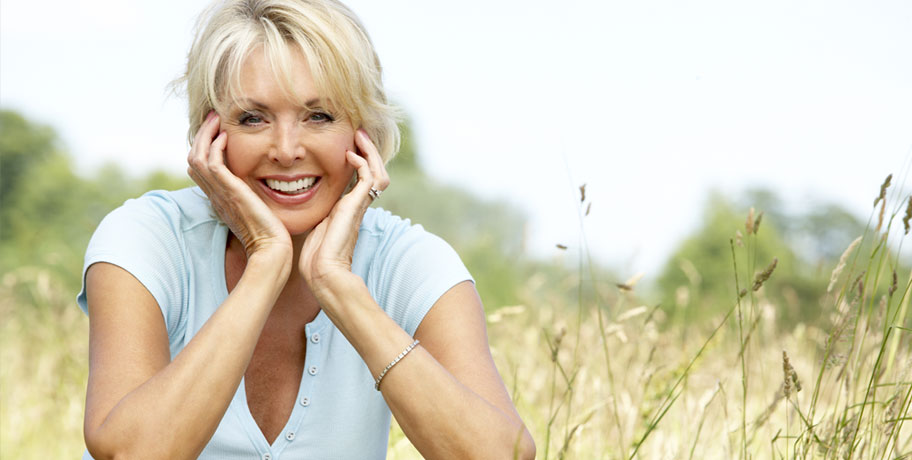
Endometriosis – 200 Million Affected
Endometriosis is a chronic condition affecting approximately 10 percent of women of reproductive age, equivalent to about 200 million women globally. However, this is only an estimate, as the exact prevalence may vary due to different factors, and the diagnosis can be challenging to make. Therefore, the actual number could be higher. Additionally, the severity of the condition can vary significantly from person to person.
Endometriosis Can Be Painful
Endometriosis is a condition where fragments of the uterine lining migrate to other parts of the body instead of being expelled with menstrual blood through the vagina. These fragments can travel to the ovaries, peritoneum, and in severe cases, even the lungs. The displaced tissue can become inflamed. The appendix can also be affected by endometriosis. The condition can cause pain before or during menstruation and may also lead to infertility.
Diet Is Important for Endometriosis
Research suggests that a diet rich in vitamin C, vitamin E, and B vitamins may positively affect endometriosis. Studies on rats indicate that vitamin D improves endometriosis. Additionally, studies show that antioxidants reduce chronic pain and inflammatory markers in women suffering from endometriosis.
Endometriosis and Estrogen Dominance
Endometriosis may be linked to estrogen dominance. Dr. Libby Weaver, a biochemist specializing in nutrition, writes:
"In cases of hypothyroidism (underactive thyroid), it has long been known that excessive estrogen production suppresses thyroid function. Given that hormonal endometriosis is a condition with extreme estrogen dominance, the connection between hypothyroidism and endometriosis is not surprising."
Symptoms of Estrogen Dominance
Symptoms of estrogen dominance may include heavy menstrual bleeding, intermenstrual bleeding, swollen and tender breasts, headaches during menstruation, fluid retention, and fibrocystic breasts (benign lumps or a rope-like texture in the breast).
Polycystic Ovary Syndrome (PCOS)
Polycystic Ovary Syndrome (PCOS) affects approximately seven percent of women of reproductive age. PCOS involves not only multiple cysts on the ovaries, as seen in PCO, but also overproduction of male sex hormones and irregular menstrual cycles.
Women with PCOS may experience irregular periods and lack of ovulation, which distinguishes it from PCO, where women may have regular menstrual cycles. PCOS can also lead to increased body and facial hair growth (hirsutism), acne, and weight gain, which are not typical symptoms in women with only PCO.
In PCOS, estrogen production is often irregular, leading to inhibited ovulation, a condition not necessarily seen in women with only PCO. Insulin resistance, which causes high insulin levels and potentially high blood sugar levels, is also more common in PCOS than in PCO.
To manage PCOS, it is important to adopt a sustainable diet and lifestyle, including regular physical activity.
Polycystic Ovaries (PCO)
Polycystic Ovaries (PCO) affects up to 20–30 percent of women of reproductive age. PCO involves multiple cysts on the ovaries, which can be observed through ultrasound. However, it is important to note that despite the presence of these cysts, women with PCO do not necessarily have overproduction of male hormones or irregular menstrual cycles, which are characteristic of PCOS.
Women with PCO may have normal menstrual cycles and normal androgen (male hormone) levels. This distinguishes PCO from PCOS, where these symptoms are more prominent. PCO itself does not cause acne, weight gain, or irregular estrogen production. If these symptoms are present, it may indicate PCOS rather than just PCO.
PCOS vs. PCO
Polycystic Ovary Syndrome (PCOS) and Polycystic Ovaries (PCO) are related but distinct concepts.
PCOS is a syndrome characterized by at least two of the following three criteria:
- Irregular or absent ovulation, resulting in irregular or no menstruation.
- High levels of androgens (male hormones), which can cause symptoms like hirsutism, acne, and hair loss.
- Polycystic ovaries (PCO), which means the presence of 12 or more small cysts in at least one ovary as seen on ultrasound.
Recommendations for Endometriosis, PCOS, and PCO
- Follow a paleo diet rich in organic grass-fed meat, organ meats, fruits, berries, and vegetables low in anti-nutrients, such as carrots and artichokes. Avoid junk food, sugar, refined carbohydrates, trans fats, and vegetable oils.
- Reduce chronic stress. Stress can deplete progesterone, leading to estrogen dominance.
- Exercise and sweat regularly.
- Address gut issues and support liver detoxification, as the liver plays a critical role in removing excess estrogen from the body.
- Avoid estrogen-like chemicals, such as BPA and phthalates.
- Maintain a healthy weight.
- Avoid coffee.
Supplements for Endometriosis, PCOS, and PCO
- Multivitamin
- Probiotics
- Vitamin D
- Magnesium
- Vitamin E
- Vitamin C
- B Vitamins
- Adaptogens
- Liver detox supplements
Remember that supplements are an addition to a balanced diet. Healthy eating, regular exercise, and stress management are crucial. Our recommendations do not replace conventional medical care.
Author
Scientific references and sources
Show referenceAnn Surg Treat Res. 2014 Sep;87(3):144-7. doi: 10.4174/astr.2014.87.3.144. Epub 2014 Aug 26. Endometriosis of the appendix. Yoon J, Lee YS, Chang HS, Park CS.
J Endometr. 2013 Jan 1;5(1):17-26. A prospective cohort study of Vitamins B, C, E, and multivitamin intake and endometriosis. Darling AM1, Chavarro JE2, Malspeis S3, Harris HR4, Missmer SA5.
Eur J Pharmacol. 2013 Sep 5;715(1-3):72-5. doi: 10.1016/j.ejphar.2013.06.016. Epub 2013 Jun 25. Regression of endometrial implants treated with vitamin D3 in a rat model of endometriosis. Abbas MA1, Taha MO, Disi AM, Shomaf M.
Transl Res. 2013 Mar;161(3):189-95. doi: 10.1016/j.trsl.2012.05.001. Epub 2012 May 31. Antioxidant supplementation reduces endometriosis-related pelvic pain in humans. Santanam N1, Kavtaradze N, Murphy A, Dominguez C, Parthasarathy S.
Endometriosis symptoms and treatments av Dr Libby Weaver
Oprah’s “Crazy Talk” – Bioidentical Hormones – Helpful or Harmful? (Part 1) av Byron J Richards.
